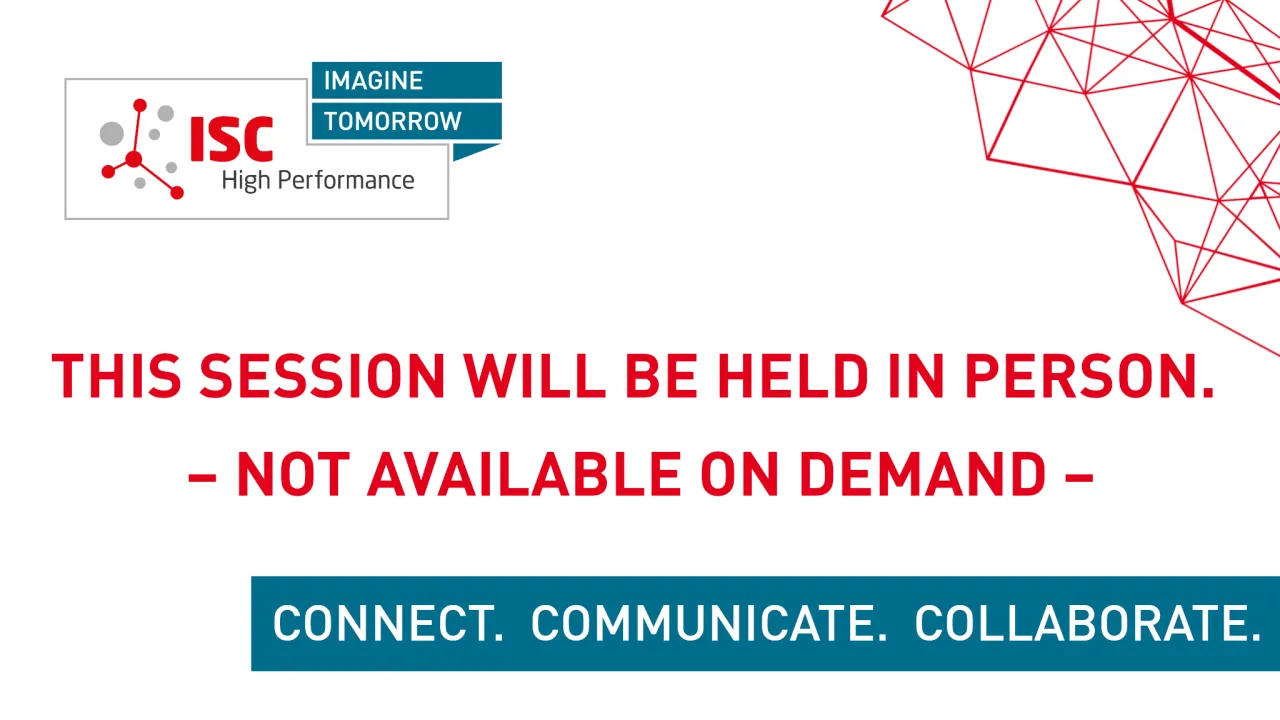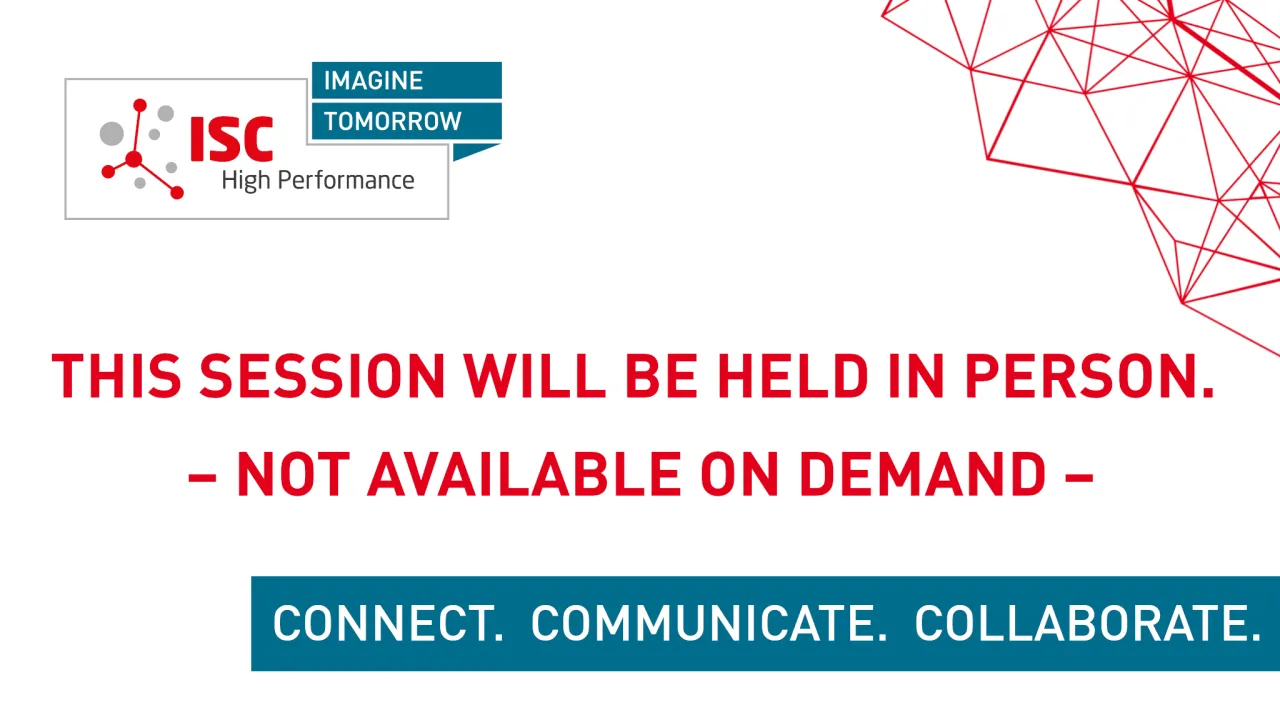

2nd Workshop on Quantum and Hybrid Quantum/Classical Computing Approaches
Thursday, May 25, 2023 9:00 AM to 6:00 PM · 9 hr. (Europe/Berlin)
Hall Y8 - 2nd Floor
Workshop
Industrial Use Cases of HPC, ML and QCQuantum Computing - HPC IntegrationQuantum Computing - State of the ArtQuantum Program Development and Optimization
Information
Quantum computing is an emerging technology that promises to solve extremely complex problems beyond the capabilities of conventional and future supercomputers. Despite recent advances in the Quantum software and hardware, further scaling up of the technology and additional fault tolerance is needed in order to solve relevant large scale problems. Combining Quantum Computing strategies with the currently available classical HPC approaches might provide better performance for a variety of scientific problems. For the near-term applicability of Quantum Computing, it is important to investigate Hybrid Quantum/Classical Approaches. Quantum Computing has matured to a point where involvement of researchers, developers and end users can be really useful and even accelerate the development of the hardware and the associated software stack. With a long-term outlook, hardware diversity and lack of accepted quantum computing standards makes it hard to identify which family of quantum devices is going to be predominant and helping to advance state of the art. Hence, the compelling need of benchmarks, standardised methods to test and evaluate quantum hardware and software. It is also important to prepare the market place for the new technologies and educate businesses, the public sector and governments about the potential uses, benefits and timelines.
Format
On-site
Targeted Audience
The target audience covers practitioners and researchers in industry and academia in the field of Quantum Computing, and convergence of HPC and Quantum Computing, with the aim to improve the understanding of Quantum Computing capabilities to address industrial problems.It benefits also scientists, developers and professionals in HPC and Quantum Computing.
Intermediate Level
30%
Advanced Level
70%
Speakers
VA
Vassil Alexandrov
Chief Science OfficerThe Hartree Centre, STFC
Stefano Mensa
Advanced Computing and Emerging Technologies LeadThe Hartree Centre, STFC
Travis Humble
DirectorOakridge National LaboratoryNH
Nils Herrmann
Quantum Application DeveloperQuantum Brilliance
Bob Fletcher
Quantum SalesIonQ
Francesca Schiavello
Quantim Software EngineerHartree Centre
Emre Sahin
Quantum Software EngineerHartree Centre, STFCJK
Jonathan King
Chief ScientistATOM Computing
Jiří Tomčala
ResearcherIT4Innovations, VŠB - Technical University of Ostrava
Hamid Tebyanian
Postdoctoral Research AssociateUniversity of York